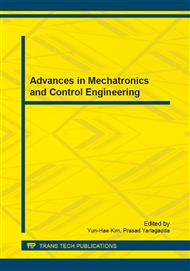p.2113
p.2118
p.2123
p.2128
p.2132
p.2137
p.2143
p.2148
p.2152
The Application of Contingency Theory in the Every Development Stage of Cluster Supply-Chain
Abstract:
The global economic integration, promoting industrial clusters and supply chains to a more perfect direction, during their development, in order to achieve greater advantage, Industrial clusters and supply chains automatically couple to form cluster supply chain. In this paper, we have made an analysis of the performance measurement system based on the cluster supply chain’s total benefit and the development of the cluster supply chain, and then we have study the focus of every development stage according to contingency theory.
Info:
Periodical:
Pages:
2132-2136
Citation:
Online since:
January 2013
Authors:
Price:
Сopyright:
© 2013 Trans Tech Publications Ltd. All Rights Reserved
Share:
Citation:


